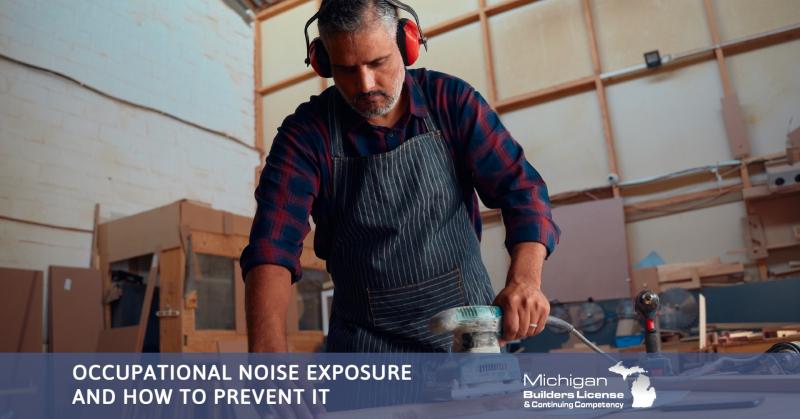As Michigan builders, you know the numerous hazards and risks of working in the construction industry. However, occupational noise exposure is an often overlooked yet significant threat to your health. Prolonged exposure to loud noises can lead to irreversible hearing damage, affecting your quality of life and overall well-being. This blog aims to raise awareness about the dangers of noise exposure and provide essential tips on preventing it, ensuring a safer and healthier work environment for all.
Understanding Occupational Noise Exposure
Construction sites are notorious for generating high noise levels, including heavy machinery, power tools, and various construction activities. Over time, prolonged exposure to noise levels above 85 decibels (dB) can lead to noise-induced hearing loss (NIHL). NIHL is permanent and irreversible, making it crucial for Michigan builders to take preventive measures seriously.
The Impact of Occupational Noise Exposure
Hearing loss is not the only consequence of noise exposure. It can also lead to other health issues, such as stress, sleep disturbances, and reduced productivity due to communication difficulties. Moreover, hearing impairment can pose safety risks, as it hinders the ability to detect warning signals or communicate effectively with fellow workers.
Preventing Occupational Noise Exposure
* Identify High Noise Areas: You can begin by assessing your construction site to identify areas with excessive noise levels. Use sound level meters to measure the noise intensity at different locations to understand where the risks lie.
* Implement Engineering Controls: Employ engineering controls to reduce noise levels where possible. These may include installing sound barriers, using quieter equipment, and maintaining machinery in good working condition.
* Personal Protective Equipment (PPE): Provide appropriate hearing protection to all workers regularly exposed to loud noises. Earplugs or earmuffs effectively reduce noise levels, but ensuring they fit well and are worn consistently is crucial.
* Work Scheduling and Rotation: Limit the duration of exposure to high-noise areas for each worker by rotating tasks or implementing staggered work schedules. This reduces the cumulative impact of noise on their hearing health.
* Training and Awareness: Educate all workers about the risks of noise exposure and the importance of wearing hearing protection. Training should also cover proper fitting and maintenance of PPE.
* Regular Hearing Checks: Encourage workers to undergo regular hearing tests to monitor any changes in their hearing ability. Early detection of hearing loss can prevent further damage.
* Noise Monitoring Program: Set up a noise monitoring program to continually assess and record noise levels on the construction site. This will help you identify areas that require additional attention and measure the effectiveness of implemented controls.
As Michigan builders, protecting your hearing should be a top priority in maintaining a safe and healthy workplace. Understanding the risks associated with occupational noise exposure and implementing preventive measures can significantly reduce your workforce's chances of hearing loss and other related health issues. Remember, a proactive approach to hearing protection enhances your workers' well-being and promotes productivity and efficiency, ensuring a successful construction project in the long run. Stay safe and protect your most valuable tool - your hearing!


